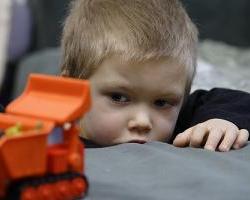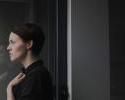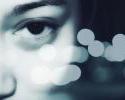Some children display repetitive behaviors such as lining up their toys before going to bed, or arranging food on their plate in a very specific way. These behaviors sometimes cause parents to wonder whether their child has OCD, or obsessive-compulsive disorder.
Parents should keep in mind that a diagnosis of OCD is not determined by behaviors alone. The feelings generated by doing the behaviors, or not being able to do them must also be considered.
Play vs Compulsion
A child’s repetitive activity can be an age-appropriate type of play, or a self-generated routine. Just as with adults, routines can help children feel secure and grounded. Play activities and positive routine are done with pleasure, and having to forgo them occasionally may be disappointing or irritating, but not overly distressing.
However, routine behavior a child does not enjoy, but believes must be done to feel okay might be a sign of OCD, as is getting extremely upset if a certain activity cannot be accomplished. Behaviors that interfere with other important functions (e.g., sleep, schoolwork) might also indicate a problem.
For example, a child with OCD:
- May be distressed and unable to fall asleep unless they check, sometimes several times, that doors and windows are locked.
- Become angry, tearful, and (or) fearful if told there’s no time to arrange their toys before school, or bedtime.
- Might stay up late into the evening arranging bedroom objects a certain way, instead of going to bed.
About OCD
Children and adults with OCD have recurring intrusive, and distressing thoughts called obsessions. The obsessive thoughts cause intense anxiety that is temporarily relieved when certain repetitive behaviors, called compulsions, are performed. A child, for instance, may have recurring, terrifying thoughts about parents dying. To keep the parents safe, and to calm the fear a child might feel compelled to perform a compulsive behavior every evening, or anytime the fearful thought arises.
Though OCD can begin during preschool years, most children develop symptoms around the age of ten - sometimes earlier than that with boys, and later for girls.
Treatment
Parents who suspect a child has OCD should have him or her evaluated by a doctor or mental health professional. If a diagnosis of OCD is made, a treatment called exposure and response prevention may be recommended. It involves gradually exposing individuals to what they fear, and helping them learn to tolerate their anxiety without performing a compulsive behavior.
The key for parents is gauging a child's feelings about routine behaviors. Know that many kids enjoy arranging things, or having things a certain way. If such activities do not disrupt normal routine or create undue stress in the home, they are likely part of that child’s normal pattern of development.
Source: Tampa Bay / Mayo Clinic
Photo credit: Miika Silfverberg







